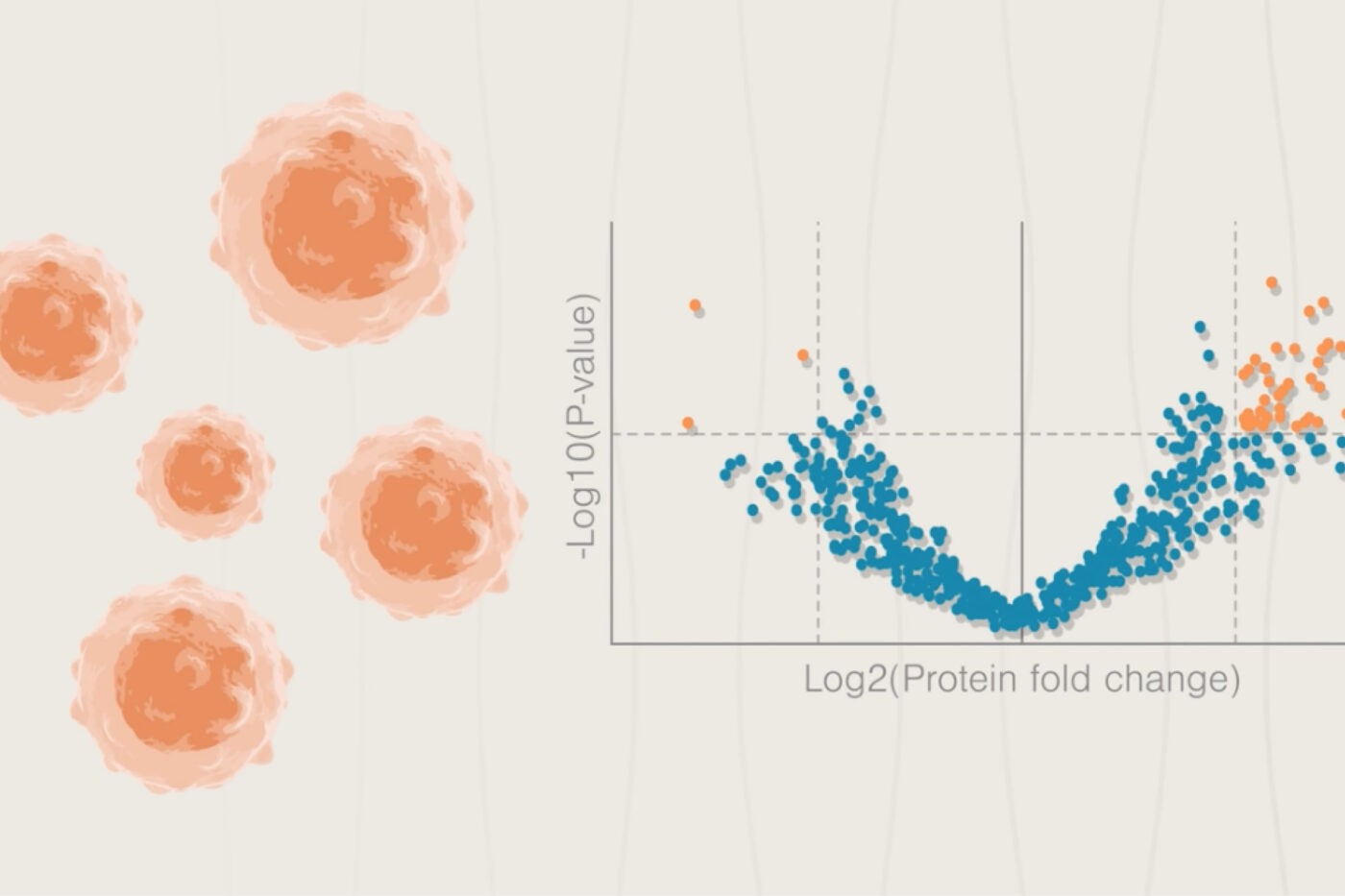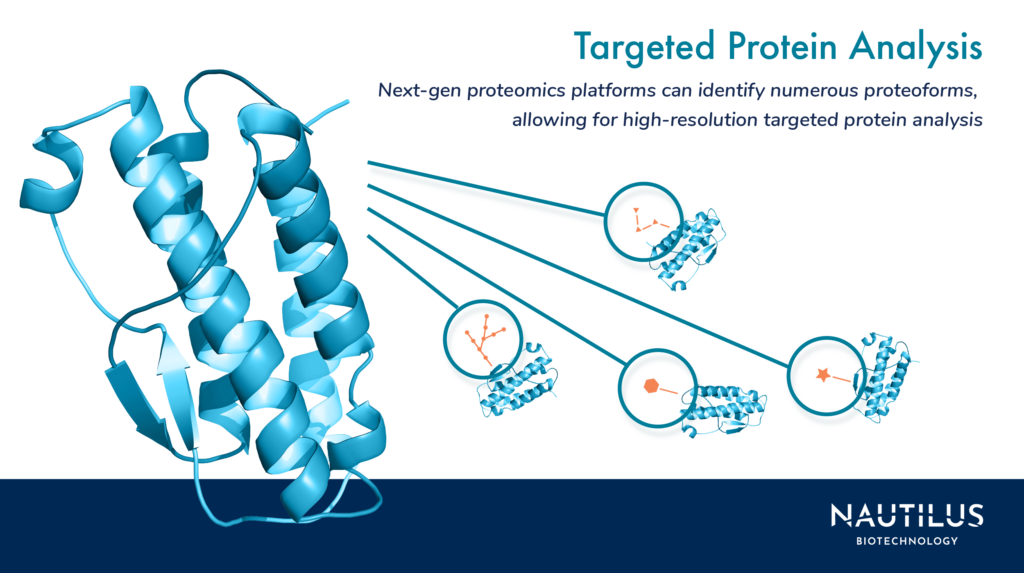
How targeted proteomics and targeted protein analyses are changing biology

Tyler Ford
October 31, 2023

Proteomics studies typically look at vast numbers of proteins in samples to determine which proteins are present and quantify them. This kind of broadscale protein analysis is good for understanding what proteins are in a sample, but in some cases, researchers want to conduct in-depth analyses of certain proteins or groups of proteins. This kind of targeted protein analysis, also known as targeted proteomics, can be used to precisely interrogate changes in the abundance of a small set of proteins and may show scientists how individual proteins have been modified to create a variety of variants known as proteoforms. Each proteoform is defined by its full set of modifications, whether those modifications come from alternative splicing, post-translational modification, or any other source. Thus single-molecule analysis of full-length proteins can greatly facilitate the identification and quantification of proteoforms.
Proteoforms can change how cells and tissues work in important ways. They may, for instance, help forestall a tumor’s growth or help the body respond to infection. While there are many kinds of targeted proteomics experiments, those focused on proteoforms may reveal biological insights that were previously hidden. Understanding which proteoforms are present, and in what number, can show scientists what’s happening inside cells with unprecedented resolution.
Learn why it’s critical to learn more about proteoforms on the Translating Proteomics podcast
What is targeted protein analysis?
Targeted protein analyses enable researchers to learn more about specific proteins and proteoforms in a sample. They can include functional proteomics studies that assess how proteins function by measuring their interactions (sometimes called interaction proteomics). They may also included targeted proteoform studies counting the different kinds of proteoforms present. These targeted proteoform studies will identify the different ways proteins are modified in samples of interest and, when combined with protein modeling techniques, may give researchers clues as to how different proteoform structures and therefore functions change in different biological contexts. We’ve yet to study all — or even most — proteoforms and there is much left to discover in the human proteome.
The Nautilus Proteome Analysis Platform is designed to enable targeted protein analyses that look for specific proteoforms among potentially millions present in a sample. The platform is also designed to conduct broadscale analysis of nearly the entire proteome and it is expected that these two analysis modalities will complement one another to enable novel biological insights.
Uses for targeted proteoform studies
Targeted proteomics can uncover which proteoforms are present, and how many of them there are. That could be useful for studying any number of conditions known to be linked to changes in protein type and abundance, or even discovering the roots of new biological functions.
One prominent way proteoforms impact biology is by changing which genes our cells express. Inside chromosomes, specific proteins called histones act as spools that DNA winds around. Changing a histone’s structure can affect which genes are transcribed into mRNA. For example, some kinds of post-translational modifications cause the spooled DNA to coil up tightly, making the genes in it unavailable for transcription, while others cause it to unwind, allowing transcription to happen.
This process of controlling gene transcription plays a big role in how our bodies work — or don’t. For example, a recent review in the journal Frontiers in Genetics highlights how histone modifications affect the aging process, and notes that diet impacts which histone modifications occur in our bodies. Studying these modifications in more detail could reveal which specific histone modifications are linked to negative outcomes as we age, potentially revealing ways to slow down the aging process.
Targeted protein analysis with the NautilusTM Proteome Analysis Platform
Next-generation proteomics technologies like the Nautilus Proteome Analysis Platform are designed to analyze proteins at the single-molecule level. This may enable researchers to see all the ways a given molecule of a single type of protein has been modified (i.e. enable them to identify proteoforms), something that is rarely possible with traditional technologies like mass spectrometry. Finally, with the ability to conduct proteoform analysis quickly, researchers will be able to compare proteoforms across samples, allowing them to link changes to proteoforms with real-world outcomes.
The Nautilus Proteome Analysis Platform is designed to not only enable more powerful targeted protein analysis, but also to democratize these analyses and make them more accessible to researchers in many different fields. With an integrated workflow and accelerated analysis, more labs will be able to conduct targeted protein analysis, potentially opening the door to a wide variety of novel insights into basic biology, drug target discovery, and diagnostic development.
MORE ARTICLES
